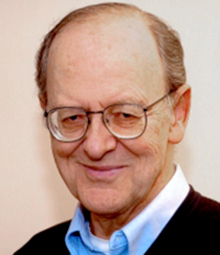
For Bob, living life to the fullest meant everything. At 48, he suffered a serious heart attack and was told he could probably expect to live only two more years. (His own father died at age 50 of a sudden heart attack.) At the time, his daughters were just 7 and 12 — much too young to lose their father.
So Bob began to take every precaution possible to extend his life. He started exercising, stopped eating red meat, lost weight, joined a rehabilitation program and support group, and saw his doctors regularly.
“He had excellent cardiologists,” says Bob’s wife, Nancy, including Dr. Michael Faulx at Cleveland Clinic, who began seeing Bob after the family moved from Maryland to Ohio.
Not only did Bob surpass the projected two years following his first heart attack, but he was also able to work until he retired from the federal government at 72. He and Nancy moved from Maryland to Ohio, where, living at Kendal at Oberlin (KAO), he led an active life that included acting in and directing stage readings and, for two years, serving as Vice Chairman of the KAO residents organization.
“He had the chance to watch our daughters grow up, and he gave them away at their weddings,” says Nancy. He also had the chance to spend time with his four grandchildren. One of his grandson’s prized possessions is a photo of him and his grandfather playing chess together.
At 81, and with failing health, Bob made the decision to donate his body to Cleveland Clinic so that others could learn from him. “He had a number of electronic devices, the latest being a biventricular ICD, implanted in him, and I had thought that would be of particular interest to medical students.”
To help him communicate his wishes for end-of-life care, Bob shared the “Go Wish” game with his daughter Laurie. He chose several cards that expressed his wishes, such as “not being short of breath,” and she did the same with another pack of cards, choosing ones that she thought would match his. By and large, they did match, and both daughters were receptive to his wishes, recalls Nancy.
Near the end of his life, when medical interventions would no longer benefit him, Bob was moved from a regular hospital room to the palliative care unit at Cleveland Clinic. The large room accommodated their entire immediate family, and together they were able to spend a few hours talking, laughing and reminiscing. “He had a good last day with the entire family,” says Nancy.
A few days later — but more than 30 years after his life-threatening heart attack — he passed away. “Bob lived a full, vigorous life, filled with love,” says Nancy. “I’m so grateful.”